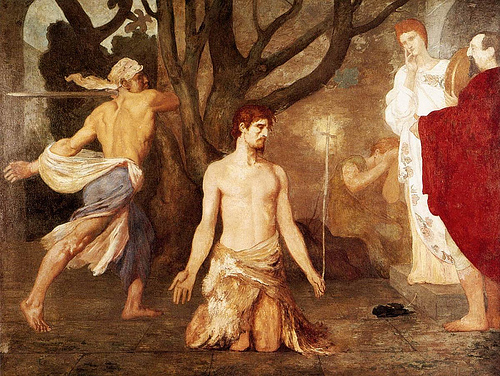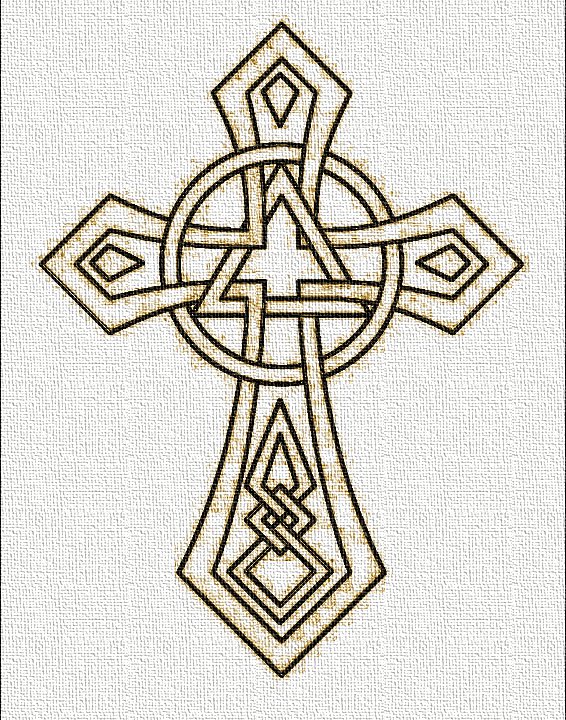So, as many of you might (or might not) know, translating the Greek of the New Testament is a tricky business.
Now a lot of the text is fairly noncontroversial to translate. It’s just not that hard. Unfortunately we run into three major hurdles in translating.
1) Ancient Koine Greek is a very dead language. It has very little to do with modern Greek. We just don’t know what some things mean. The meanings and structure of language tends to wander and change over time. What meant one thing in first century Palestine meant something else a few centuries earlier.
2) Translator bias can be a big issue. Some words have ambiguous meanings, unclear meanings or multiple meanings. If you aren’t buried in the ongoing scholarship and debate on the different interpretations you have to rely on someone else’s reading. That translator might or might not have an agenda. The classic example of this translation issue is found in Romans 16. Depending on your translation Phoebe is either a deaconess or a servant. Technically the word can mean either (and even more technically they actually mean the same thing.) In this case each individual occurrence is up to the context and the discretion of the interpreter. So why is one a servant in one place and a deacon in another?
3) The final reason, and the one that trips us up the most, is the simple fact that our languages are put together differently. Especially all of the layers behind each word. We have whole volumes of connotation behind words. We have synonyms and homophones and allusions and all sorts of ways of saying more with a word than a single dictionary definition. To get biblical on ya, words like faith, works and law all have automatic meanings to us because of how we’ve heard them used before. Well Greek has these too and they don’t always carry over well. And this brings us to the issue at hand. And it’s all about Love.
One of the great oddities of the English language is that, in contrast to nearly every other language, we only use one word for “Love.” I love these shoes. I love my girlfriend. I love my God. I love my neighbor. I love Cajun BBQ wings from Sports Page. These are not all the same meanings but they are all represented the same way.
By contrast, the Greeks had at least 4 major words for love. Luckily we’re partially bailed out on this because the New Testament really prefers agape (self-sacrificial or divine love) and we rarely see it contrasted against other “Loves.”
And yet that is exactly what we find in John 21. If you’re using just about anything except a Greek New Testament the exchange between Peter and Jesus in John 21:15-19 makes little or no sense.
Peter, do you love me?
Yes.
Peter, do you love me?
Yeah, sure.
Peter, do you love me?
Seriously, I said it three times now. Why aren’t you getting this?
So why is Jesus apparently harassing Peter? Well its all in the Greek. The Johannine author is juxtaposing Agape-Love and Phileo-Love (friend love, friendship).
Peter, do you love me more than you love yourself (Agape-Love)?
Yeah, Jesus you know we’re friends (Friend-Love).
Peter, do you love me more than you love yourself (Agape-Love)?
Yeah, I mean c’mon were buddies and everything (Friend-Love).
*Long Sigh* Peter, are you my friend (Friend-Love)?
Yes! Yes I am (Friend-Love)!
Simon “Hold my cloak I’m jumping in the lake” Peter is having commitment issues. Jesus is asking for the radical commitment. Jesus is asking Peter to drop the nets again, to give up everything, even himself. But Peter isn’t sure. He waffles. He balks. He taps the brakes.
But Jesus already knows where its all heading. Peter will learn the self-sacrificing Love again. He’ll learn it on a long road of preaching and persecutions. He’ll learn it as he faces down governors, soldiers and kings. He’ll learn it on a long road that starts with leading a Pentecost Revolution and ends with a Cross.
So why do we have this strange exchange? If all of this was going to happen anyway why ask? Well, the long and the short of it, is this: If God did all that with “Friend-Love” what could He have done with Agape-Love? What could God have done with Peter if he’d gone all-in? What could He be doing with us?


